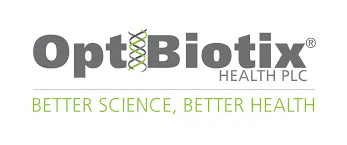OptiBiotix Health PLC
Is OptiBiotix Being Taken for a Ride? A Shareholder’s Perspective on the LeanBiome Labelling Discrepancy
By Elric Langton | 13 June 2025
Mike, Alex, and I are financially interested in SkinBioTherapeutics and OptiBiotix Health.
As a shareholder in OptiBiotix Health, I have taken a keen interest in the launch and promotion of LeanBiome, a supplement described in the Lean for Good press release dated 23 May 2025 as a “clinically researched gut health supplement” designed to “support natural weight loss through probiotic and prebiotic synergy.” Developed using OptiBiotix’s unique microbiome technology, LeanBiome® was promoted as the first formula of its kind to combine nine ‘lean bacteria’ species with Greenselect Phytosome®, a patented and caffeine-free green tea extract.
Compare the marketing blurbs.





